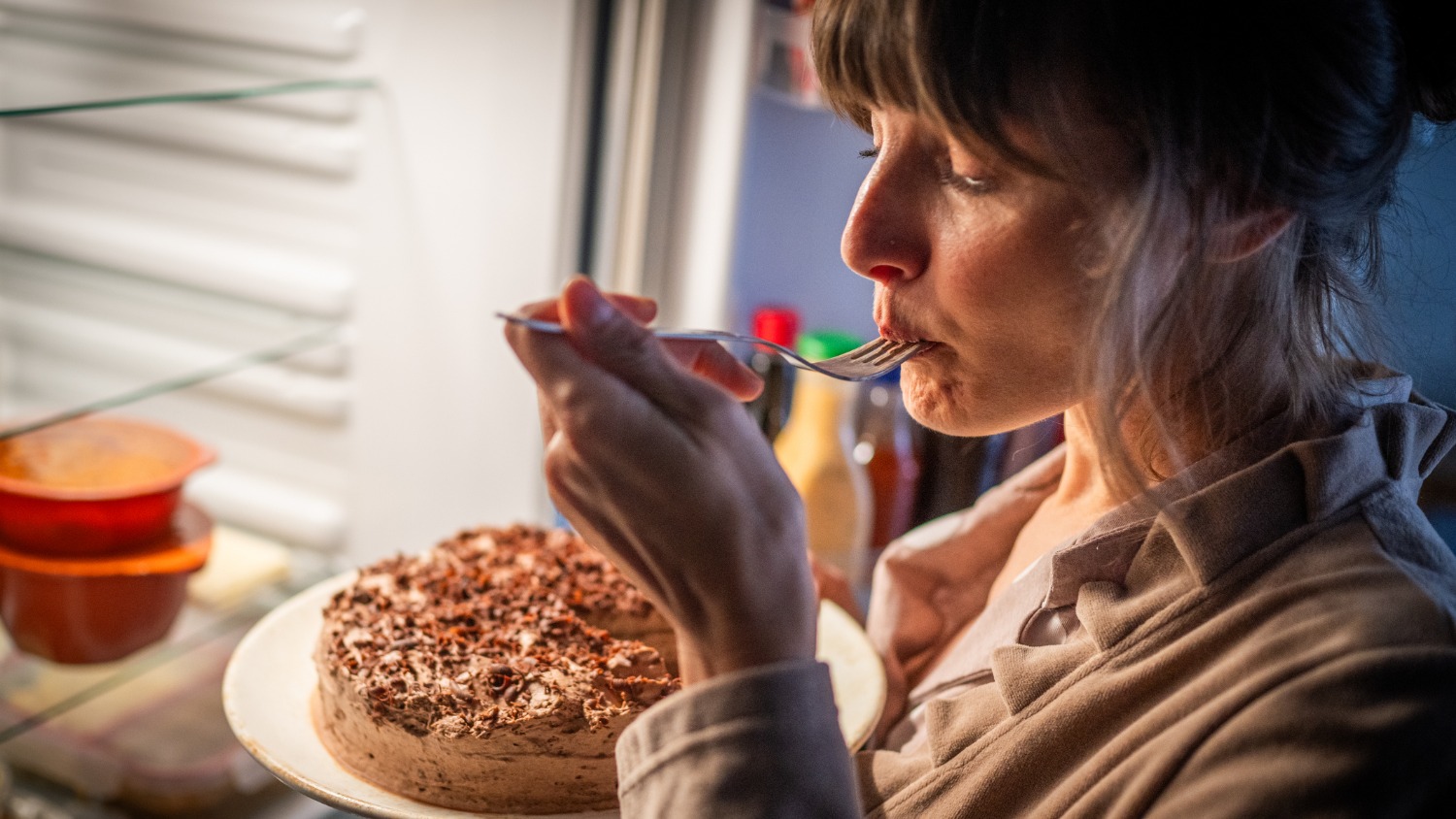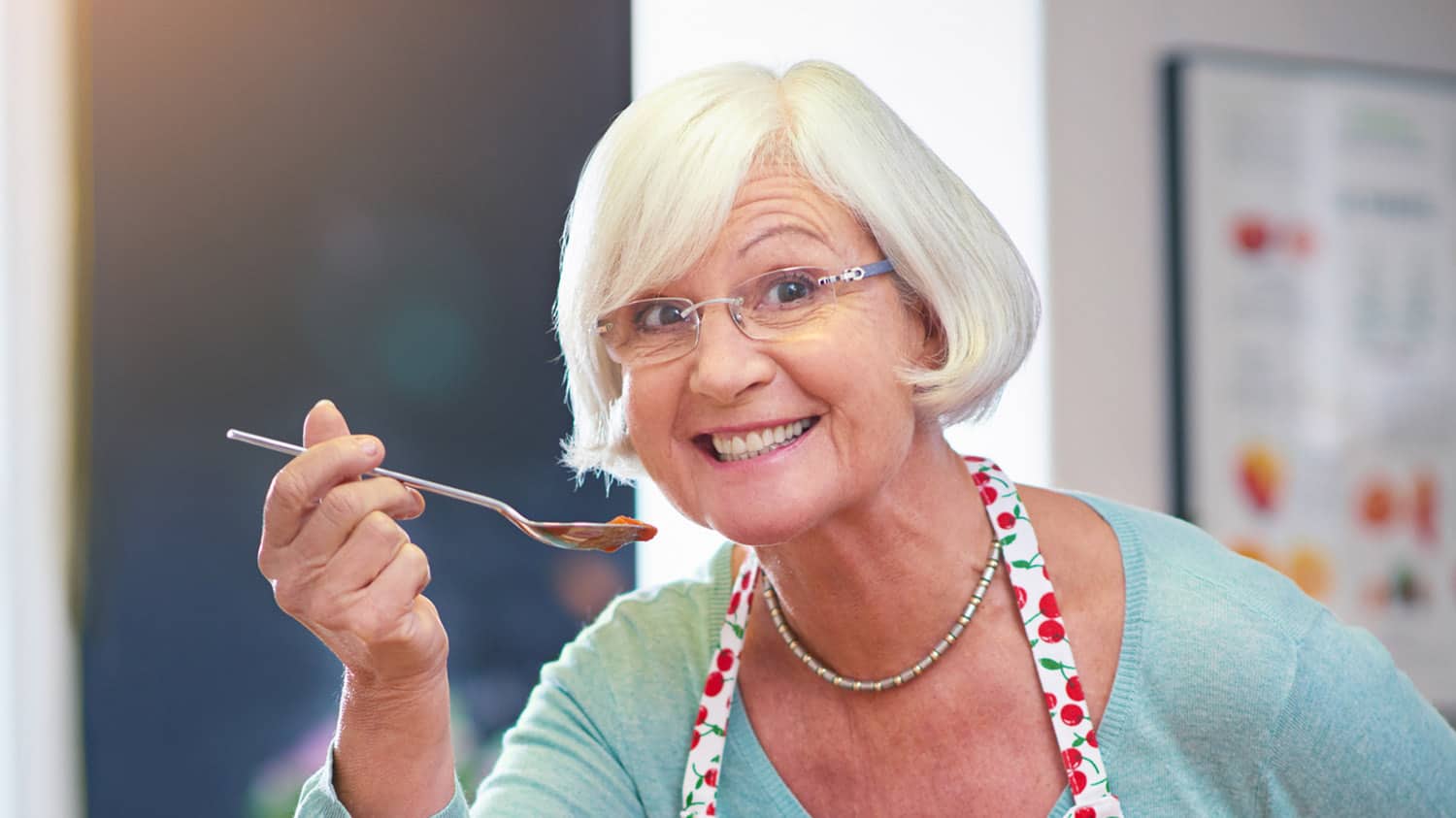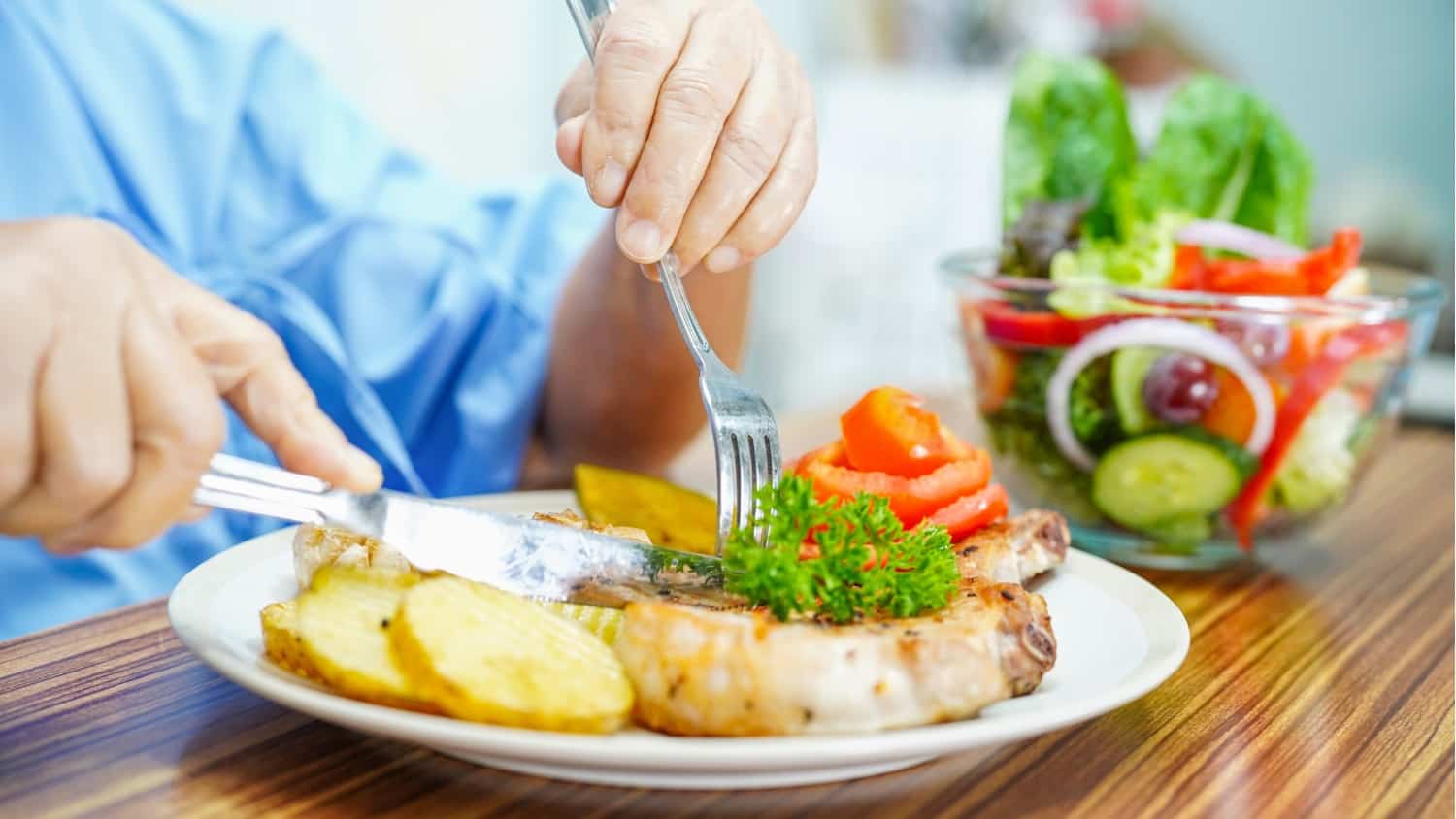
4 Strategies to Overcome Emotional Eating: Building a Healthy Relationship with Food and Emotions
Emotional eating, the act of using food as a coping mechanism for emotional distress, can pose challenges to those of us seeking a healthy relationship with food. However, with the right strategies, it is possible to overcome emotional eating and develop healthier coping mechanisms.
Emotional eating usually develops gradually, influenced by a variety of factors. Understanding the root causes of emotional eating is crucial in addressing this issue, unraveling its origins, and developing effective strategies to break free from its grip.
Emotional eating often begins as a seemingly innocent response to occasional emotional discomfort or stress. At first, it may provide a temporary sense of relief or distraction from negative emotions. For instance, after a particularly challenging day at work, indulging in a sweet treat may offer a brief escape and create a sense of comfort.
Over time, however, this occasional behavior can develop into a habitual pattern as the brain starts associating food with emotional relief. The brain’s reward system reinforces the connection between consuming certain foods and feeling better emotionally, leading to a cycle of emotional eating.
In this article, we will explore effective strategies to address and overcome emotional eating, empowering us to build a positive and balanced relationship with food and our emotions.
Developing Emotional Awareness
Mindful Self-Reflection
Take time to reflect on your emotional state before, during, and after eating. Pay attention to the triggers, emotions, and thoughts associated with emotional eating episodes. This increased self-awareness can help you identify patterns and gain insight into your emotional eating habits.
Journaling
Keep a food and emotions journal to track your eating behaviors and emotional experiences. Record the emotions you are feeling, the circumstances surrounding emotional eating episodes, and the foods you consume. This process can bring awareness to emotional triggers and help identify patterns or common themes.
Pause and Reflect
Before reaching for food in response to an emotional trigger, take a moment to pause and reflect. Ask yourself if you are truly hungry or if there is an underlying emotional need that can be addressed in a healthier way.
Building Healthy Coping Mechanisms
Emotional Regulation Techniques
Explore alternative ways to regulate and cope with emotions. Engage in activities that bring you joy, such as practicing mindfulness, exercising, journaling, meditating, or engaging in creative pursuits. Experiment with various techniques to discover what works best for you in managing emotional distress.
Seek Support
Reach out to trusted friends, family members, or professionals who can provide support and guidance during challenging times. Sharing your feelings with others can provide a sense of validation and help alleviate emotional distress, reducing the reliance on food for comfort.
Stress Management
Implement stress reduction techniques into your daily routine. Regular exercise, adequate sleep, deep breathing exercises, and engaging in activities that promote relaxation can help manage stress levels and reduce the likelihood of turning to food for emotional relief.
Mindful Eating Practices
Eat Mindfully
Practice mindful eating by paying attention to your food choices, eating slowly, and savoring each bite. Focus on the sensory experience of eating, including the taste, texture, and aroma of the food. This mindful approach can help you connect with your body’s hunger and fullness cues and make conscious food choices.
Balanced Nutrition
Aim for a balanced and varied diet that includes a range of nutrients from different food groups. Nourishing your body with wholesome, nutrient-dense foods can provide long-lasting energy and support overall well-being.
Portion Control
Be mindful of portion sizes to avoid overeating. Use smaller plates and bowls, and listen to your body’s signals of fullness to avoid eating beyond your physical needs.
Emotional Eating Alternatives
Identify alternative activities that provide comfort or relief from emotional distress. Engage in hobbies, connect with loved ones, practice self-care, or engage in relaxation techniques to redirect your focus away from food and towards healthier coping mechanisms.
Self-Compassion and Positive Body Image
Practice Self-Compassion
Be kind and understanding towards yourself when facing emotional challenges or setbacks. Avoid self-criticism and practice self-compassion, acknowledging that emotional eating is a common struggle and that you are taking steps to overcome it.
Foster Positive Body Image
Cultivate a positive body image by embracing and appreciating your body for its strength and functionality. Focus on self-care, nourishing your body, and engaging in activities that promote body acceptance and self-confidence.
Emotional eating has multifaceted root causes, including emotional triggers, learned behavior, stress, lack of emotional awareness, trauma, negative body image, and environmental influences. Identifying and understanding these underlying factors is essential in addressing emotional eating effectively. By recognizing the root causes, we can develop personalized strategies and seek support to break free from emotional eating patterns and establish a healthier relationship with food and their emotions.
Overcoming emotional eating requires a multifaceted approach that addresses both the emotional and behavioral aspects of this behavior. By developing emotional awareness, building healthy coping mechanisms, practicing mindful eating, and fostering self-compassion, we can break free from the cycle of emotional eating and cultivate a positive and balanced relationship with food and emotions. Remember that change takes time, patience, and perseverance, but with the right strategies and support, it is possible to overcome emotional eating and embrace a healthier lifestyle.
Reclaiming control over your eating habits and fostering a healthier relationship with food and with yourself can be difficult, but it is possible. You can start your journey by getting my free e-Book here and learn how emotional eating began for you.
Let’s Have a Conversation:
What are your favorite strategies to overcome emotional eating? Do you keep a food and emotions journal? What have you noticed reading over your entries? Let us know in the comments.
Tags Healthy Eating







while watching television, 9-10pm, I find myself wanting to munch on something. Not hungry, just want to chew……rice cakes, pop corn, pretzels…… So annoying, especially after I have brushed my teeth! Help!
Hi Linn, thank you for your comment. In my experience, night snacks serve a few purposes that usually can be fighting boredom, evacuating stress, or keeping yourself busy so that your mind doesn’t wander towards uncomfortable topics you don’t really want to address. Which one can you relate to the most? My advice would be to let yourself explore those feelings you are fighting with food, and face what hides behind your boredom, or discomfort, or creates your stress. Once you become fully aware of it, you can make active decisions to implement change in your life so that you feel more fulfilled, less stressed or can make decisions that will restore your peace of mind
My husband became an emotional eater when his mother was dying 4 years ago. He was having to fly from Europe to London every 2 weeks to support his sister and it was very difficult. It was made all the more stressful by the fact he had a poor relationship with both parents (and his mother hadn’t spoken to me for 34 years when she died).
His poor relationship with his mother brought some very bad memories to the fore as she was not good to him as a child. He sought solace in food during this period and ended up gaining weight which he is now struggling to lose. I try my best to police his diet at home but can’t be responsible when he goes to the office canteen on certain days of the week.
Hi Linda, thank you for your comment. I am so sorry to learn your husband has had to turn to food to process all that stress, pain and grief. At the same time, he needed “a crutch” during those difficult times, and food allowed him to make it through it all. Now, you are not responsible for his eating behavior and you don’t need to carry that burden. It is on him
To decide when he is ready to focus on developing healthier eating habits. In addition, policing his diet is not fair for him nor for you. It makes you “the bad guy” and it takes his power away from him. What you might do is try to sit him down and voice your concerns about his health. In my experience, “discipline” doesn’t work very well as long as the underlying pain is not dealt with. I would therefore also recommend he tries to talk with a counselor, if he agrees to it, and finish healing the pain of his relationship with his parents.
Hi Linda, thank you for your comment. I am so sorry to learn about the difficult times your husband had to go through. I am not sure policing his eating behavior is fair on either of you though. It makes you the “bad guy” while burdening you, and takes his power away, putting him in a “child-like” position with you, creating rebellious behaviors like eating behind your back. Your relationship therefore can lose its balance. You cannot force him to change if he is not ready to. Have you tried to voice your concerns to him from a place of love and care, while avoiding judgment? That might help him realize what he is doing to himself. You might also bring up the idea of counseling. If he still needs to eat his emotions, there is still some unaddressed difficult emotions he is dealing with and he might need a professional’s help to finish healing.
Thanks Marion for your thoughtful article. However, if it was as easy as ‘reaching out’ to family and friends (no-one wants to be labelled a complainer), or that well-worn advice to employ mindfulness and deep breathing, there would be no need for emotional eating. Using a snack to literally provide a moment of sweetness in a difficult day, or to give reliable and immediate gratification and comfort – this is an ingrained, lifelong practice BECAUSE IT WORKS. With respect, I believe those who derive physical and emotional release from deep breathing, meditation or a warm bath, are not those who have an issue (or don’t) with emotional eating.
Well said!
Hi, thank you for your constructive comment. You are right, we use emotional eating as a coping mechanism because it works. But it is not the only coping mechanism available. Those cited in the article work too, though not immediately as well as the one we have been practicing for years, sometimes decades. There is indeed a learning curve.
Now, many emotional eaters don’t like being labeled as complainers because they were brushed off when they tried to express their feelings earlier in their lives. But there is nothing wrong, weak or complaining about asking for help. And that would be a path to explore also, in order to be able to rely on food a bit less. Another path would be to acknowledge the level of stress you are constantly under, and consider how to bring changes in your life so you feel better and don’t need to mute your emotions that much.
Here is my proposal: my article for October is already in writing but I would really like to be able to address a helpful topic for you. If you tell me what you would like me to explore for November’s article, I will, with the hope to meet your needs and open perspectives about how you can handle your relationship with food a bit differently, if this is something that you would like.
I can so relate.. have done emotional eating for a very long time. Recently started on anti depressants and it’s getting better every day.
Hi Gigi, thank you for your comment. I à so glad that you have found something that works for you! I totally agree that emotional eating is not a problem with food. Food is just the way we handle our problems, and the emotions that come with them. When our inner peace is restored, there is no more difficult emotions to mute, and no use for emotional eating. My best wishes for the next part of your journey!